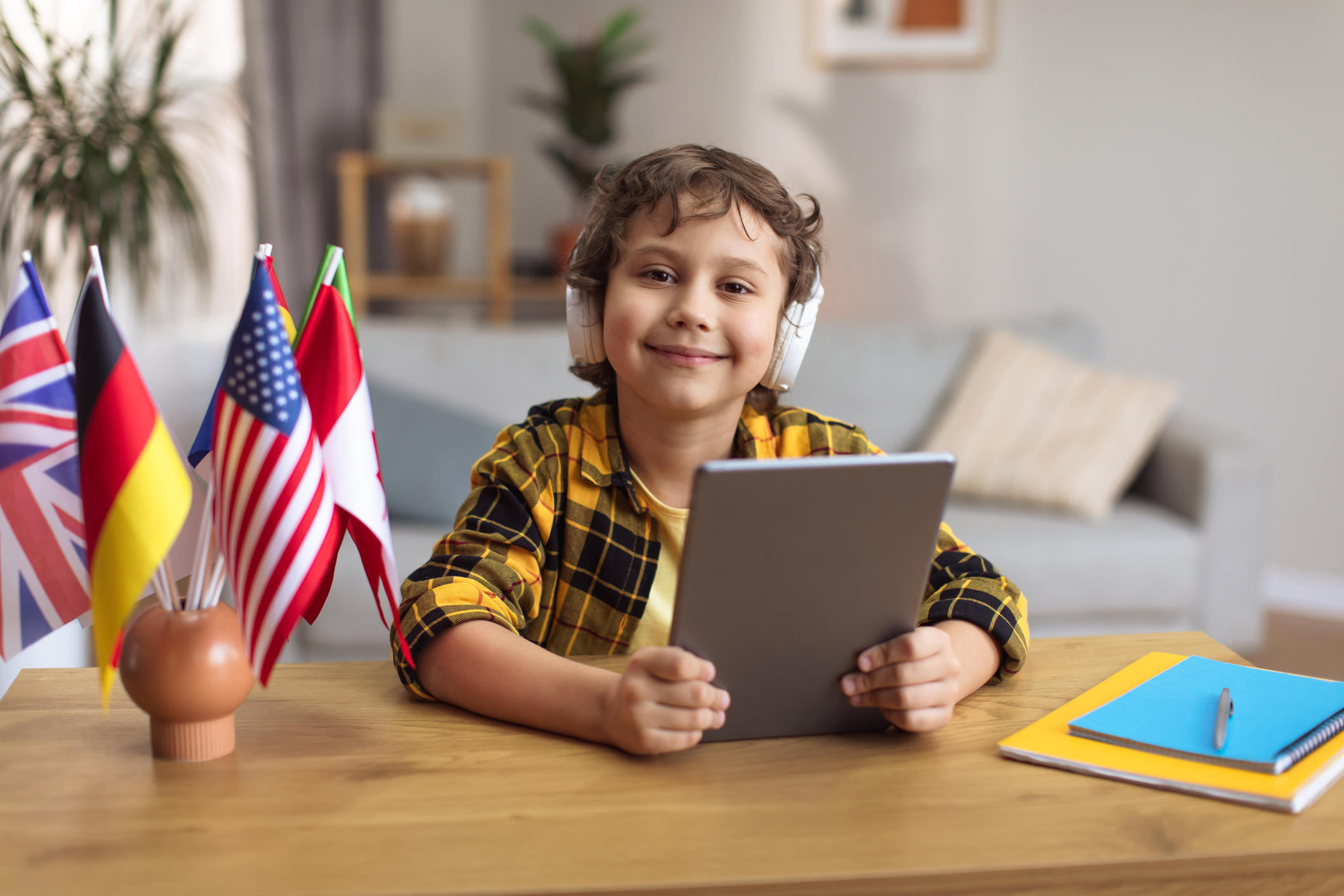7 Advantages Bilingual Children Have Over Monolinguals



Have you ever thought about raising a bilingual child?
Perhaps you have seen other parents trying bilingualism at home, and it makes you wonder if you should try it too?
Well, you’re not alone. More and more people are raising bilingual or multilingual children in today’s society.
In the US alone, over 13 million kids, or 24% of the children in the country, speak a language other than English at home—Spanish being the most common one. Although different sources give different numbers, it’s estimated that over half of the global population is bilingual.
As globalization became a reality, the advantages of being bilingual have become more evident than ever before. That’s why bilingual education institutions such as LingoCircle and Homeschool Spanish Academy have become so popular in the last few years.
Why Bilingualism?
The real question is—as you’ll see in a minute—why not?
There are many benefits to bilingualism, multilingualism, biculturalism, and biliteracy.
There isn’t a debate about it.
LingoCircle and Homeschool Spanish Academy understood this a long time ago and have been offering families in the US and worldwide the opportunity to raise bilingual children.
Their flexible and easy-to-use systems have earned the trust of tens of thousands of families. Here are seven advantages bilingual children have over monolinguals.
7 Advantages of Being Bilingual
Let’s now explore some of the main advantages of bilingualism, including social and cognitive benefits and career advantages, and other culturally essential benefits.
1. Increases School Engagement and Academic Success
Research has shown that bilingual children outperform monolingual ones in test scores and their reading and writing abilities.
Bilingual kids also have better attendance at school, fewer behavioral problems, and higher involvement from parents.
So, if you want to help your child at school, considering a second language such as Spanish or French can be an excellent choice.
2. Stronger Working Memories and Attention Spans
In the past, linguists and psychologists believed that learning a second language could slow down the development of children.
However, modern studies have shown that that’s simply not true and that quite the opposite happens.
Researchers have shown that “bilingual students usually have stronger working memories and attention spans.” These are two of the main cognitive benefits of bilingualism and skills that directly influence academic results and behavioral progress.
3. Heighten Cultural Intelligence and Open-Mindedness
Learning a new language is learning a new culture.
When your child learns French, English or Spanish at LingoCircle or Spanish at Homeschool Spanish Academy, she isn’t learning only grammar and spelling.
She’s also adventuring into a whole new culture.
This biculturalism develops in children “a strong sense of their cultural identity” and an interest in cultural events.
But unfortunately, monocultural kids don’t share the same interest.
Learning about a different culture also benefits essential developing skills such as empathy, tolerance, and an open mind to the world and other cultures.
4. Higher Vocabulary Range
Due to learning a second language, bilingual students tend to be exposed to more words in both languages than monolingual children.
This results in bilingual kids having a higher vocabulary range than children that only speak their native language.
The human mind isn’t like an empty warehouse with limited space to fill but more like a flexible balloon that expands itself as you keep adding knowledge to it.
5. Upgrades Your Child’s Neurological Structures
If you’re worried about what bilingualism can do for brain development, don’t!
Researchers have found that bilingualism “may alter the neurological structures” and affect how they process information.
Studies showed that “higher proficiency in a second language […] correlates with higher gray matter volume in the left inferior parietal cortex.”
In other words, bilingualism does affect brain development, but in a positive way.
6. Literacy Acquisition
A study in bilingualism showed that “knowledge of several different orthographies enhances L1 and L2 proficiency.”
This means that if English is L1 and Spanish is L2, the proficiency in both languages is enhanced by learning a second language.
This is known as biliteracy, or “the ability to read and write in two or more languages.”
Biliteracy is explained by bilingual children’s greater phonological awareness and vocabulary memorization.
Additionally, reading skills are transferable. In other words, bilingual kids develop stronger literacy skills.
7. Gain a Competitive Edge
So, bilingualism makes your child more intelligent, better at school, and more open-minded,
But what about her career prospects?
Can bilingualism influence what kind of job your child will get in the future? Many examples suggest precisely that.
For instance, the American Graduate School of International Management reported a competitive advantage due to their foreign language skills and cultural knowledge.
On the other hand, Euro London reports that bilingualism can increase your salary by up to 15%. Finally, according to The Economist, your child could earn between $50,000 to $125,000 more just for speaking a second language.
Take Advantage of All These Benefits and Give Your Child the Gift of a Second Language
Once you’ve learned about the benefits of bilingualism, the question isn’t “why bilingualism?” but “why not?”
Who wouldn’t want to take advantage of all that and give a competitive edge to their child?
LingoCircle and Homeschool Spanish Academy are two of the best language schools in the market, and they can help you give your child the gift of a second language.
LingoCircle offers tailored group sessions grouped by age, proficiency level, academic goals, and cultural background.
At LingoCircle, your child gets daily guided activities, and you can choose from full-immersion or dual-language programs in French, Spanish, English, Chinese, Korean, or Arabic.
Sign up today for a free trial class at LingoCircle and give your child the gift of a second language and the chance to be a bilingual kid!
On the other hand, Homeschool Spanish Academy (HSA) is a school that’s famous for teaching Spanish as a second language, and it offers personalized Spanish classes tailored to any level.
Sign up today for a free trial class at HSA with one of their certified, native Spanish-speaking teachers from Guatemala.
They teach over 40,000 classes every month and offer flexible scheduling and affordable payment options.


Simple Ways to Learn a Second Language at Home
Get resources and tips to help supplement your bilingual education journey at home.
By providing your email you are signing up to receive emails from Bilingual Bebe. Privacy Policy






